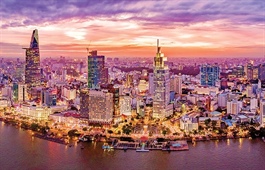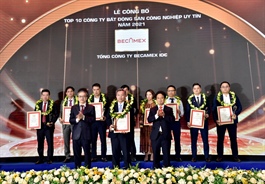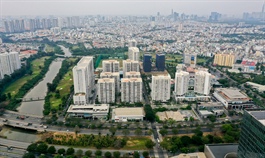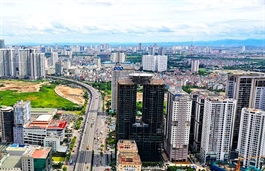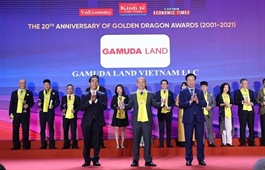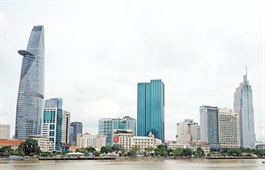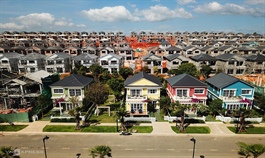Bright potential for urban branded residences
Bright potential for urban branded residences
In key cities of Vietnam, the demand for residential properties is high and sophisticated buyers are looking for different luxury products to suit their lifestyles. This mirrors the trends worldwide, where the number of branded residences have been constantly increasing to cater to the growing and globally-mobile high-net-worth population.

By David Jackson CEO, Colliers Vietnam
|
In the past year, Vietnam’s economy which showed resilience amidst the COVID-19 pandemic and was one of a few countries to register GDP growth in 2020 and is forecast by the World Bank that GDP will increase 6.81 per cent in 2021. This creates higher confidence amongst buyers in the real estate market of Vietnam.
Branded residences attract foreigners, overseas Vietnamese, and rich Vietnamese people alike. Grand Marina Saigon that is backed by Marriott International has created confidence among customers both locally and abroad. When it was launched in Hong Kong most recently, many customers invested without visiting the project or showroom.
The well-known brand has attracted many buyers, and Vietnam’s real estate has attracted many foreign investors who are looking at alternative markets with higher upside potential when investment opportunities in their own countries are becoming saturated.
Hotel-branded apartments are easier to rent out due to their quality and brand name, and the hotels may have databases of potential tenants. With many favourable factors such as prime location, quality construction, unique design, wide range of utilities, dedicated service, lifestyle benefits, and trusted global brand name, it is likely that the value of the property will remain high and appreciate over the long term.
Vietnam’s urban branded residence price is similar to projects in Bangkok, but significantly lower than those in Hong Kong, which can fetch more than $45,000 per square metre.
In terms of numbers, Vietnam is only at the infancy stages of the branded residences concept, whereas many other countries already have many projects.
For example, the US has at least 130 projects, Europe has over 50, China has more than 30, and Dubai and Bangkok have at least 15 projects. Approximately three-quarters of the branded residences are in urban areas while the remaining quarter are located in resorts.



